Support for Trump, questions for Harris in pro-fracking Pennsylvania
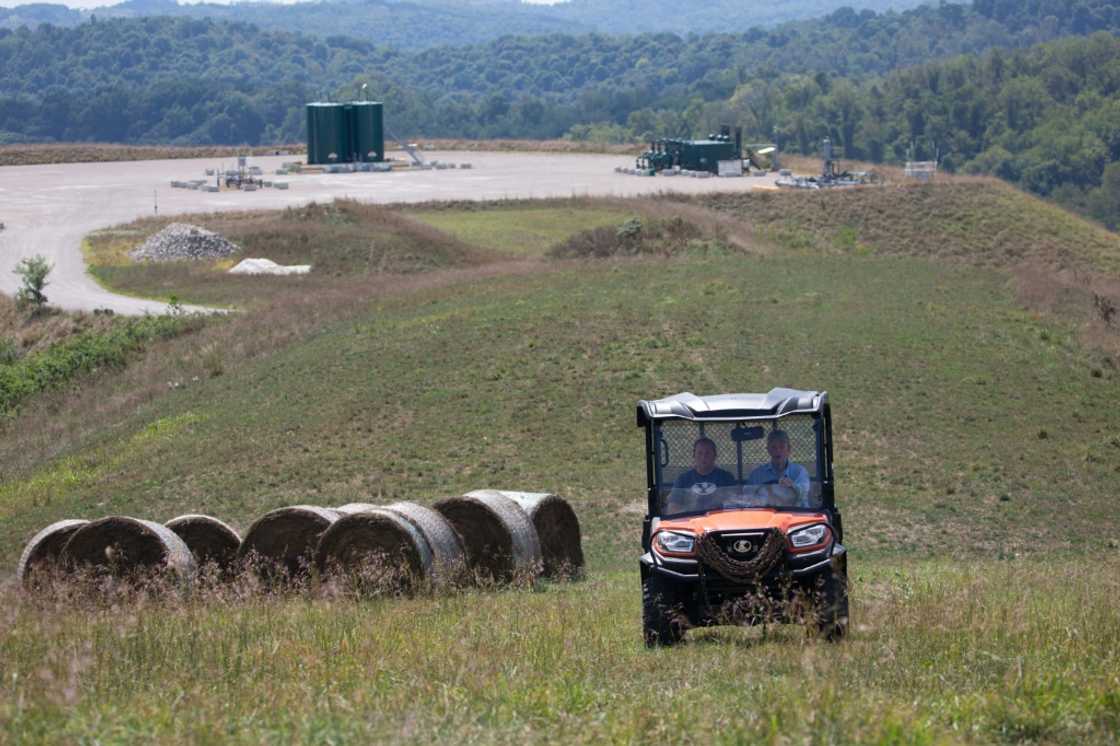
Source: AFP
PAY ATTENTION: NOW You can COMMENT on our articles on the YEN website! Learn how to get started.
For Pennsylvania farmer George Wherry, 85, fracking for natural gas under his otherwise bucolic fields means greater economic "freedom" -- one of the many reasons he'll be voting for Donald Trump in November.
Hydraulic fracturing is a controversial but highly effective technique for unlocking fossil fuels deep underground. With Pennsylvania both rich in natural gas and a vital swing state in presidential elections, Trump and Democrat Kamala Harris are going out of their way to express support.
Unfortunately for Harris, who supported a ban on the practice during her first run for president in 2019, many voters in prime fracking country say they trust Trump to be a better steward of the industry.
Wherry and his 56-year-old daughter Diana Petrie, who recently returned to the family sheep farm after 30 years in Colorado, say they will go for the Republican.
"I'm hoping that it's definitely Trump," Petrie told AFP, standing next to her father at the gravel-covered fracking pad, which sits on a flattened hilltop a short buggy ride from the family home in nearby Scenery Hill.
"You know what you're going to get," she said. "And that's what I wholeheartedly believe in."
PAY ATTENTION: Click “See First” under the “Following” tab to see YEN.com.gh News on your News Feed!
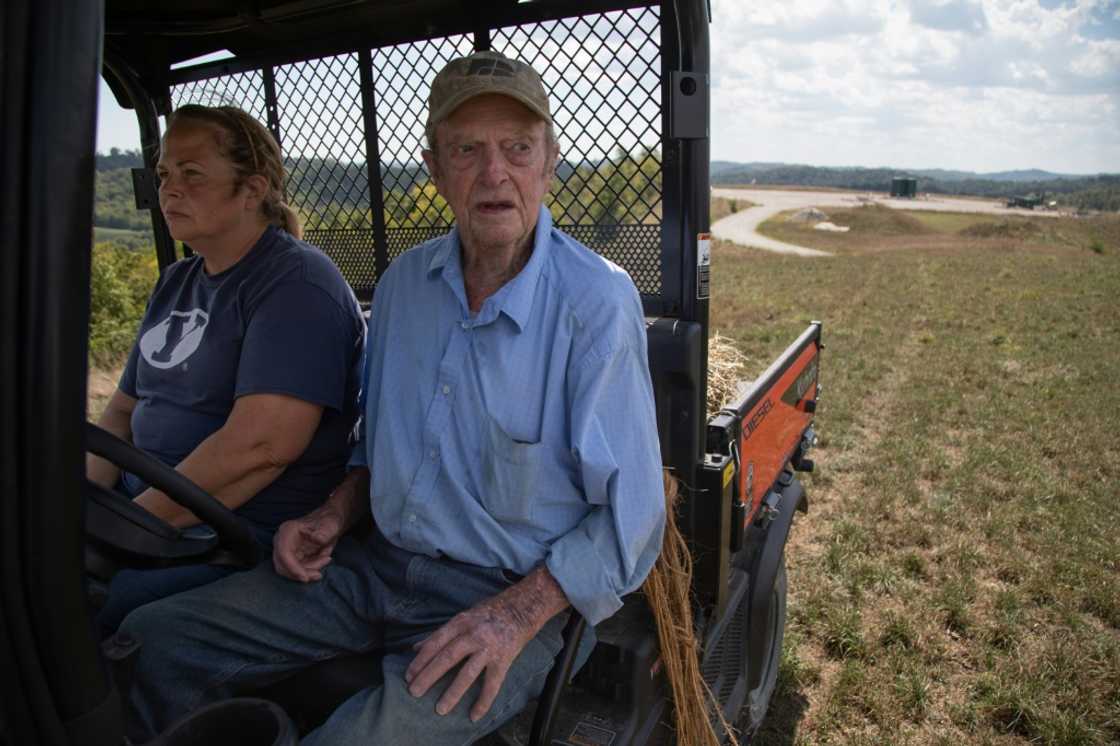
Source: AFP
Their 360-acre farm lies in Pennsylvania's southwestern county of Washington, a largely rural corner where Trump won more than 60 percent of the vote in both 2016 and 2020.
They have a flock of more than 500 sheep and a small herd of beef cattle for personal consumption, along with what's known as a fracking pad: three deep wells extending thousands of feet beneath the earth's surface to reach the abundant natural gas trapped in the Marcellus Shale formation.
The royalties allow Wherry to invest in new technology that makes sheep farming "easier" and more cost-effective, he says. "It's allowed me a little more freedom."
Growing support in Pennsylvania
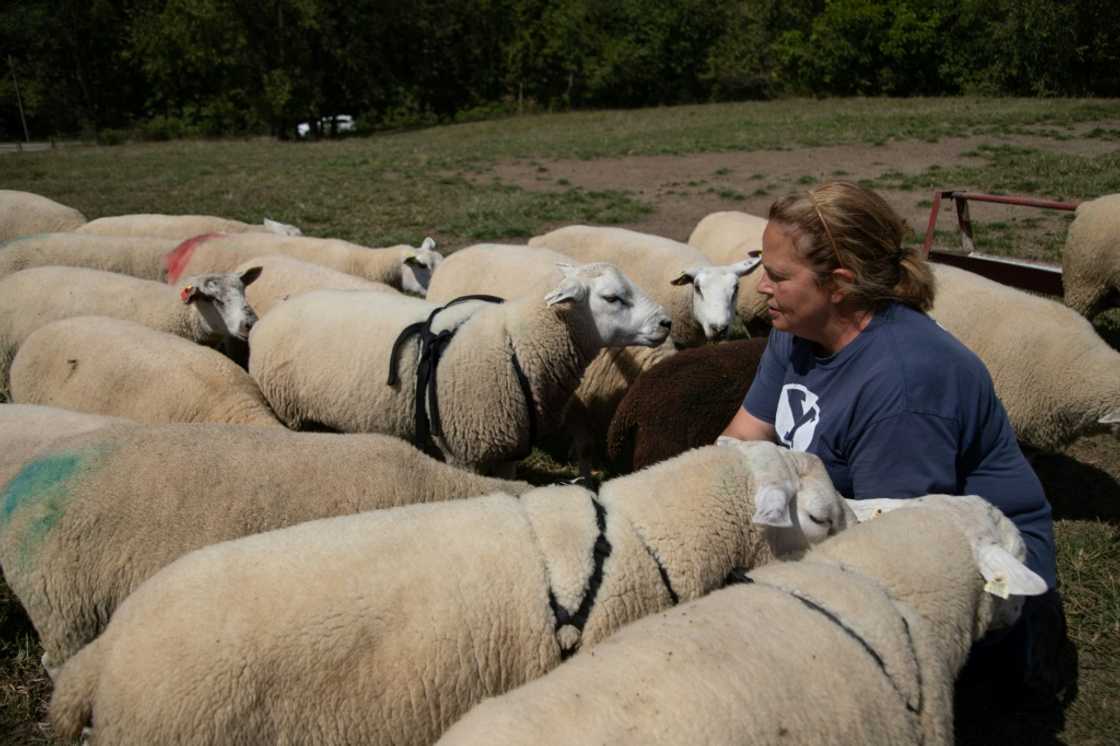
Source: AFP
Once a Democratic stronghold with a strong union presence, Washington County has voted Republican in every presidential election since 2008.
Trump's strong support for fracking has helped him here – as it has across the Appalachia region, where a controversial shale gas boom since 2008 minted millionaires almost overnight and created rare, well-paying blue-collar jobs in an area undergoing deindustrialization.
Harris's past support for a fracking ban – which she has reversed in her current presidential run– has left many in Washington County skeptical.
"I believe that your word is your bond," former coal mine manager Jason White told AFP in an interview, adding that Harris’s "about-face" on fracking had not convinced him.
A registered Republican, the 37-year-old runs Wild Acres Farms, a 400-acre site in Deemston Borough Township dotted with small, shallow fracking wells, which also hosts hunting and fishing trips.
He plans to vote for Trump in November.
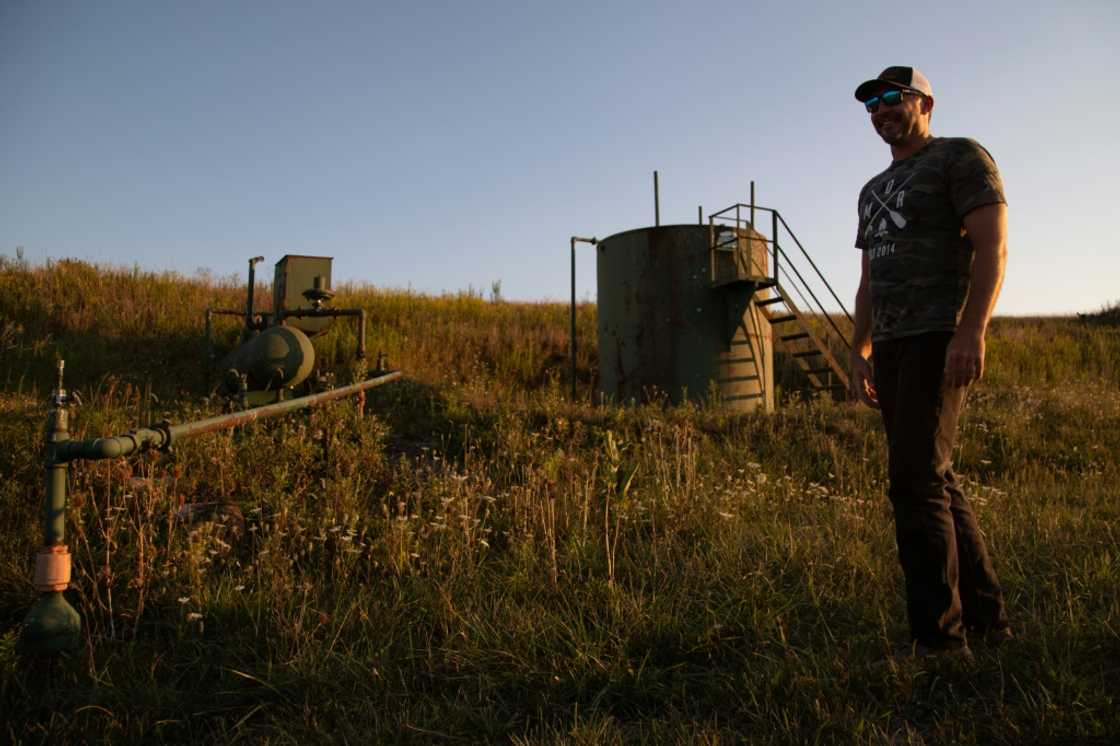
Source: AFP
Environmentalists, scientists, and public health experts have raised repeated concerns about the health and climate impacts of the fracking process, which involves pumping water, sand, and a proprietary blend of chemicals thousands of feet underground at high pressure to create fractures in the bedrock and release the gas trapped inside.
But even as countries across Europe, including France, Britain, and Germany, have paused or banned fracking on environmental and health grounds, many Pennsylvanians have grown more enthusiastic.
According to 2022 poll from the Muhlenberg College Institute of Public Opinion, Pennsylvanians are "highly divided" on the impact of natural gas extraction in the state, with 48 percent in favor of fracking – up nine percentage points from a decade earlier – and 44 percent opposed.
But when asked if they thought natural gas was important for Pennsylvania's economy, more than 85 percent of respondents said yes.
'Bought and sold already'
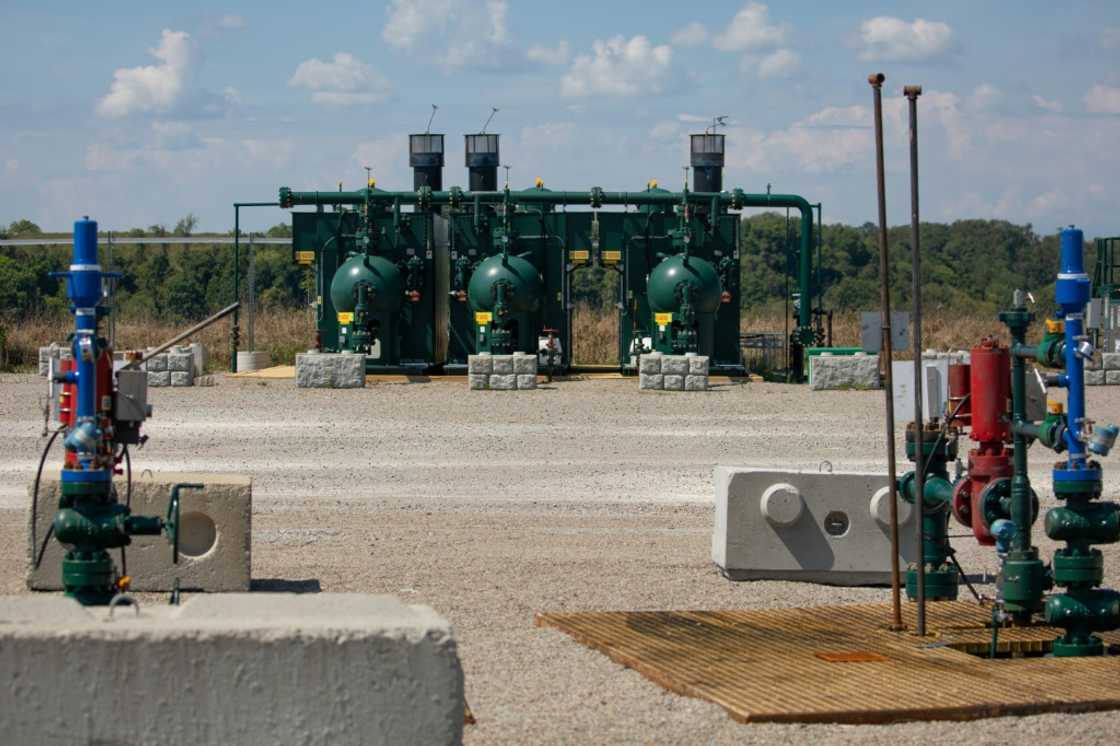
Source: AFP
"Fracking has been positive, I would say, all around," said August Michel, a long-time Republican voter who runs a lemonade business at farmers markets across Washington County.
"So to be anti-fracking is kind of like being anti-farmer, right?" the 53-year-old told AFP at his stall in the Monongahela farmers' market. "You can't really get rid of the farmer now that fracking has worked as well as it has."
Michel, 53, voted for Trump in 2016 and 2020, and plans to do so again in November.
A few stalls away, Laura Jean Kahl, who sells fresh produce from her family farm, told AFP that she will be voting for Harris in November for one simple reason: "She's not Donald Trump."
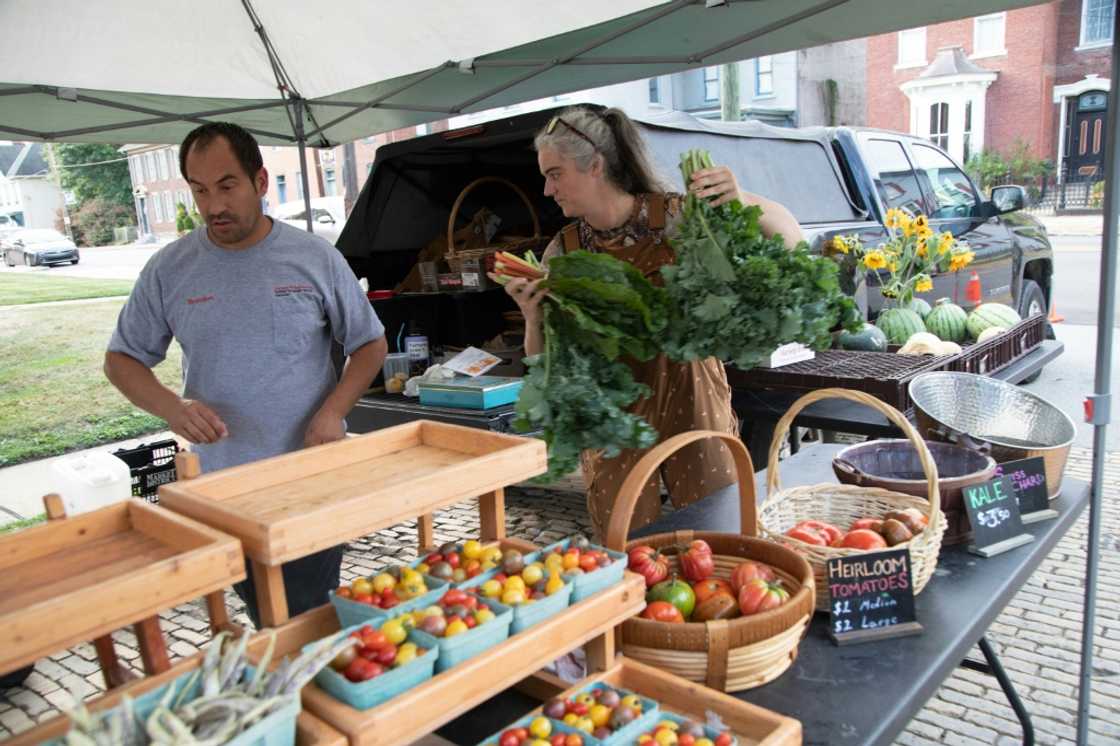
Source: AFP
"We got a woman of color here. She's young, she's got her wits about her," said Kahl, 40. "That's at least a little more inspiring."
Kahl said she does not think the short-term financial gain from fracking is worth its long-term environmental impact. But she does not hold out much hope that Harris's election would put a stop to it.
"There's too much money and momentum behind fracking as an industry." she said. "It's bought and sold already. The deals are done."
New feature: Сheck out news that is picked for YOU ➡️ click on “Recommended for you” and enjoy!
Source: AFP






